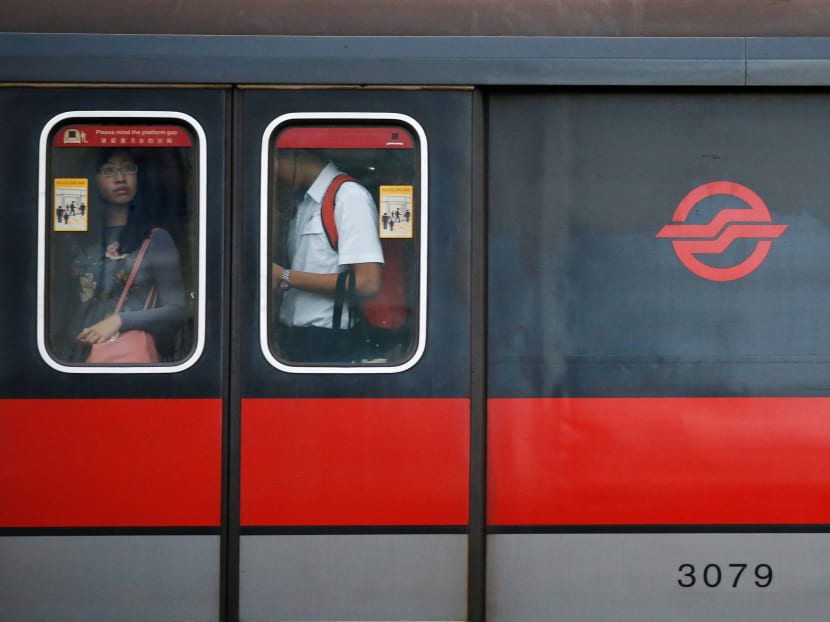Privatisation will allow SMRT to sharpen focus on rail service: Analysts
SINGAPORE — Being a private company will allow SMRT to sharpen its focus on being a service provider, which can potentially translate to a better-run public transportation system here in the long term, observers told TODAY.

People stand at the window of an SMRT train cabin in Singapore on Tuesday (July 19), 2016. Photo: Reuters
SINGAPORE — Being a private company will allow SMRT to sharpen its focus on being a service provider, which can potentially translate to a better-run public transportation system here in the long term, observers told TODAY.
Being a listed entity means SMRT continues to be subject to responsibilities such as quarterly reporting and dividend delivery to its shareholders, which remain a distraction from its core operations of providing public transport, they said.
“The notion of delisting and privatising allows them to have full control of running the business without having to answer to minority shareholders, the hassle of filing quarterly reports, meeting the various auditing and regulatory requirements,” said Mr Nicholas Teo, strategist at KGI Fraser Securities.
The comments came after reports emerged that state-owned investment company Temasek Holdings is exploring the possibility of taking SMRT private. Temasek is the major shareholder of SMRT with a 54 per cent stake and buying the remaining shares it does not own may cost S$1.1 billion, based on the transport company’s current market value of around S$2.4 billion. Spokespersons for Temasek and SMRT said the companies do not comment on market speculation.
Trading of SMRT shares has remained suspended since last Friday (July 15), when they closed at $1.545 each. On Monday morning, the company announced a continuation of the trading halt pending a possible announcement. No announcements were made on Tuesday.
“I can see how the deal could make sense for Temasek — SMRT is a stable company, it has no capex (capital expenditure) burden, may not be hugely profitable but it can bring in consistent profits. It’s almost like a utility,” Mr Teo added.
CIMB Private Banking economist Song Seng Wun said delisting SMRT can help it find the balance of being a viable company while not compromising the interests of commuters. He noted criticisms levelled at the company for raising fares at the expense of commuters in order to post better financial returns to shareholders.
“That kind of backlash can be avoided. By taking it private, the ultimate shareholders are the commuters themselves who are the taxpayers behind Temasek and the Government ... So the people are not paying a transport operator who is entirely motivated to generate returns to shareholders,” he said.
“As far as commuters are concerned, hopefully we have a more efficiently-run network, and pricing is also affordable,” he added.
The reports of SMRT potentially being privatised came after the Land Transport Authority (LTA) said last Friday that it will buy the transport firm’s operating assets — for the North-South and East-West lines, the Circle Line and the Bukit Panjang Light Rail Transit — worth S$1.06 billion.
Several research houses downgraded SMRT’s target price after the terms of the sale to LTA were announced. DBS Vickers Securities noted that the deal would limit the upside potential of SMRT, and downgraded its price target from S$1.53 to S$1.28 per share. However, the brokerage has since placed its recommendation under review pending further developments of the possible Temasek buyout.
CMC market analyst Margaret Yang said that while there are benefits to being an asset-light company, the potential cap on SMRT’s profitability could undermine its attractiveness as a firm to invest in if it remains listed.
“From an investor’s point of view, there are reasons to exit the stock after the announcement of the LTA deal. Operating costs may continue to be high for SMRT too, due to rising maintenance costs. These can further hit profitability and given the trade-off, it might be better for it to be privatised,” she said.






